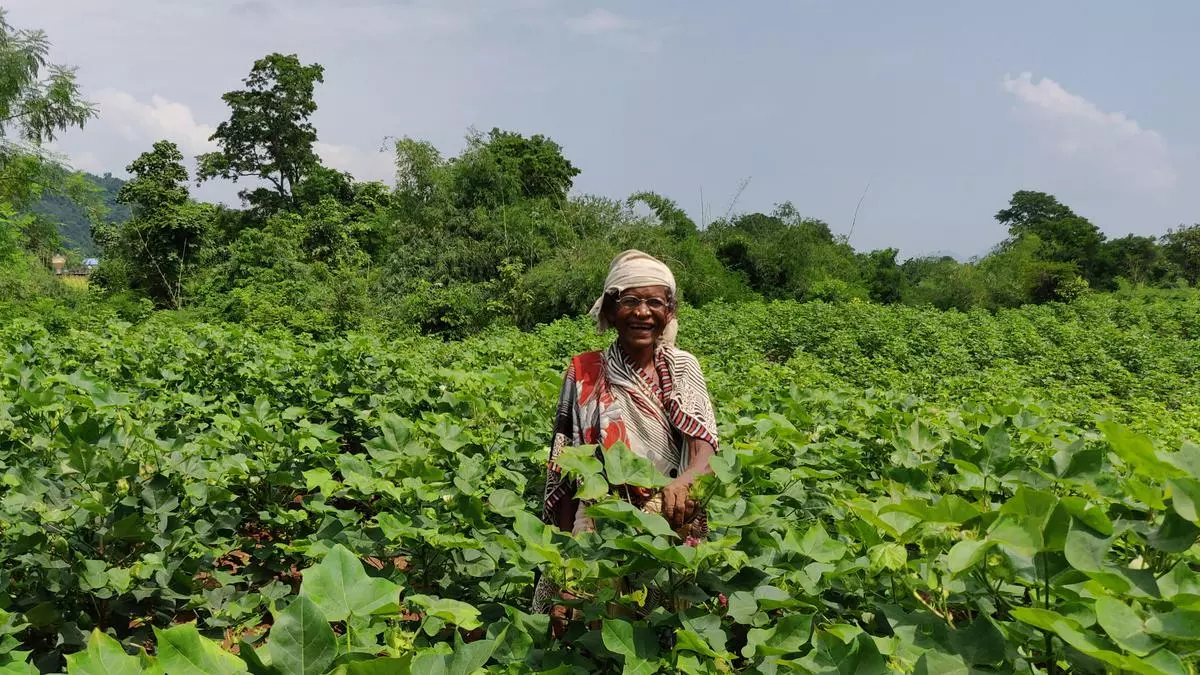How organic farming can help the income and socio-economic development of the farming community in India
Agriculture is a significant contributor to India’s economy, providing employment to more than 50 percent of the population and contributing 18 percent to the country’s GDP. However, the agricultural community in India has always faced many challenges, including unpredictable weather conditions, high input costs, low yield, and market volatility, which leads to low levels of income and poverty.
One solution to these challenges is Organic Agriculture, A sustainable agricultural practice that uses natural inputs such as compost, manure, and biological pest control methods to grow crops. Avoids the use of synthetic chemical fertilizers, pesticides, growth regulators, GMOs, and livestock feed additives. Organic farming is gaining popularity all over the world, with a global market size of $112.04 billion in 2019, and India is no exception.
many ways
Organic farming in India can help the income and socio-economic development of the farming community in several ways:
High prices of organic productsOrganic products are in high demand in India and abroad, as consumers are willing to pay a premium for food that is free from chemicals and harmful additives. Thus, organic farming can provide lucrative income for farmers, as organic produce is often sold at higher prices than conventionally grown crops.
Lower input costs: Organic farming involves the use of natural inputs such as compost, manure, plant growth stimulants, adjuvants, bio-pesticides and organic herbicides that are either available on the farm itself or can be obtained at reasonable cost. This can significantly reduce input costs for farmers, and increase their profit margins.
Soil health improvement: Healthy soils ensure proper aeration and the retention and release of water and nutrients to promote and maintain root growth, maintain vital soil habitats, reduce soil erosion risks and improve crop resilience to climate change.
Reduce health risks: The pesticides and chemical fertilizers used in conventional farming have been linked to many health problems, including cancer, neurological disorders, and reproductive health issues. Organic farming, with its focus on natural inputs and biological pest control methods, can reduce health risks for farmers and consumers.
Community development: Organic farming can also contribute to the development of society by promoting sustainable and environmentally friendly practices. It can provide a platform for farmers to share knowledge, resources and experiences, leading to better crop management and higher yields. In addition, organic farming can create jobs in processing, distribution and marketing, which will improve social and economic development in rural areas.
Improving Environmental Sustainability: Organic farming is more environmentally friendly than conventional farming. By doing so, soil and water quality can be improved, greenhouse gas emissions can be reduced, and biodiversity can be improved. This can have a positive impact on the local ecosystem and the wider community.
Long way to go
India has made great progress in promoting organic farming in recent years, with the government launching several initiatives to promote organic farming practices. According to the Economic Survey 2022-23, India currently has 4.43 million organic farmers. About 5.91 million hectares of land are organically cultivated. The Federation’s 2023-24 budget aims to help 10 million farmers adopt natural farming over the next three years. However, there is still a long way to go, as many farmers lack access to training, resources, organic produce, and markets.
However, in India, organic farming has the potential to increase productivity, lower input costs, improve soil health, provide access to niche markets, and enhance environmental sustainability. Hence, organic farming could be a game-changer for the farming community in India as the government and other stakeholders continue to invest in promoting organic farming and support farmers in adopting these practices. By doing so, India can boost the income and socio-economic development of its farming community, improve food security, and promote sustainable farming practices.
The writer is the Chairman and Managing Director of Netsurf Communications Pvt. Ltd.
